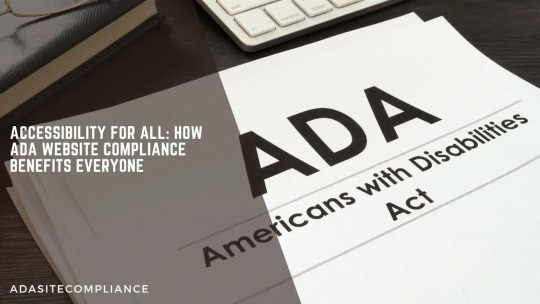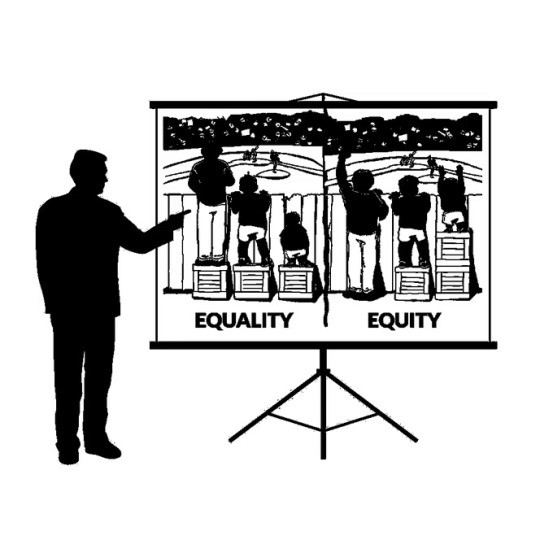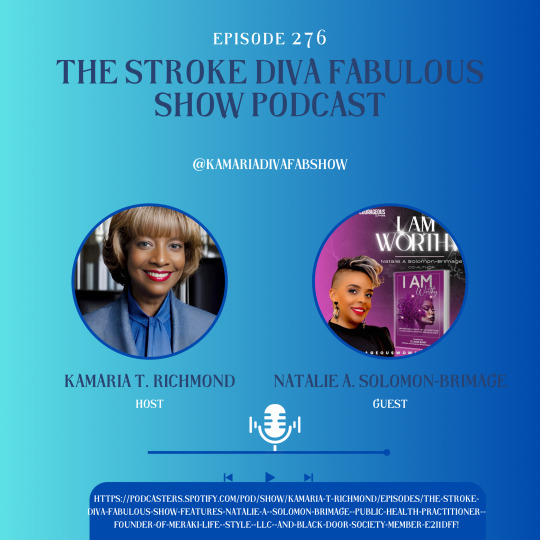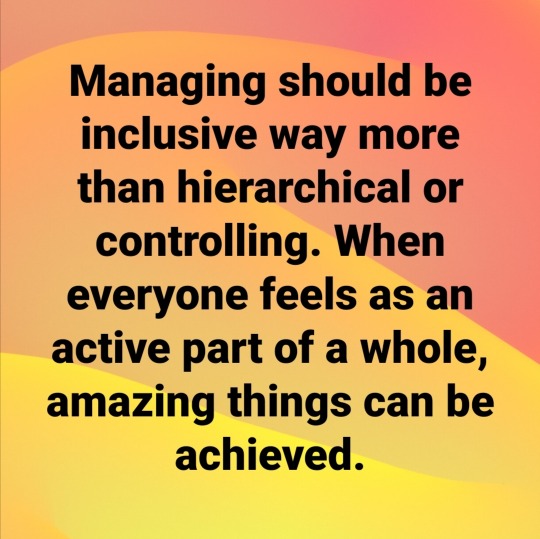#& inclusion consulting
Text
By: Mike Ramsay
Published: Mar 7, 2024
Late last month, the public learned that the Toronto District School Board (TDSB) through its Equity, Anti-Racism & Anti-Oppression Department issued a teaching guide claiming the Canadian education system is “colonialist” and designed to uphold the dominant white culture. The document, entitled “Facilitating Critical Conversations,” specifies that “education is a colonial structure that centres whiteness and Eurocentricity and therefore it must be actively decolonized,” and “schooling in North America is inherently designed for the benefit of the dominant culture (i.e., white, middle-upper class, male, Christian, cisgender, heterosexual, able-bodied, neurotypical, etc.)”. It adds that, “race matters—it is a visible and dominant identity factor determining people’s social, political, economic, and cultural experiences.”
While the school board has since temporarily removed the guide pending review after the Ontario Ministry of Education called it divisive, it is important that this thinking which has captured our school systems not be ignored.
That this handbook was actually produced and distributed by the TDSB did not come as a shock to me, because, in my view, it is representative of what is taking place at other school boards right across Ontario. A reasonable question to ask is how all of this came about.
Having served as a trustee for 24 years, I would suggest it emerged because of the work of frontline activists who truly believe in their cause and that the system is stacked against racialized students. However, many others in leadership positions, who have other motives, simply see this as an opportunity to enrich themselves. They did this by pretending to address the activists’ perception of the issues.
As a Black trustee and past chair of a large school board (WRDSB), I often wondered what good could come from paying DEI consultants upwards of $500.00 an hour to teach kids that if they are white, the successes they experience are not due to personal effort. Meanwhile, racialized students are being taught that despite personal effort, their chances of success are diminished because society is racist and therefore biased against them.
The fact is that we have both white and racialized kids who are doing well academically. Conversely, we have white and racialized kids who are not doing so well. What I have found as a member of my board’s discipline committee is that the kids (from all backgrounds) who are not doing well usually have other issues that are at play, including, but not limited to significant behavioural issues that are impacting their ability to learn. However, you can’t tell this to the proponents of DEI, who have been busy organizing events to celebrate and take credit for the academic success of racialized students who I believe were, for the most part, never in danger of failing school in the first place. The credit should go to the parents and caregivers who worked and continue to work hard to encourage and support their children.
Thankfully, with the passing of each day, more and more people are beginning to question the need for school initiatives that are fixated on identity politics. They are coming to realize that certain aspects of DEI instruction can actually lead to greater prejudice and even harm, as highlighted in a recent study released by the Aristotle Foundation and authored by Professor David Haskell.
Haskell’s report shows that DEI related to “anti-racism” education and its promotion of “white privilege” doesn’t make participants more sympathetic to disadvantaged Black people as DEI trainers claim, and can in fact make them more hostile toward poor white people.
As he elaborates, “Teaching students about white privilege, a core component of the DEI curriculum, does not make them feel more compassion toward poor people of colour but can reduce sympathy [and] increase blame…for White people struggling with poverty.”
In light of Haskell’s overwhelming evidence, I feel school boards should be required to justify the expense and existence of DEI in their organizations. Moreover, if it is doing harm as his research shows, do we not have an obligation to use legislation to stop the practice immediately in our classrooms?
I would say we do. And that is why I agree wholeheartedly with parent Liz Galvin who recently told the Halton District School Board: “Trustees, when your equity and inclusion policies are used to generate administrative procedures by un-elected DEI proponents that contradict the aims and prescribed goals of said policy, then you have an obligation to insist that they be scrutinized, amended and or removed.”
It seems straightforward, but the practice will not stop if it is left solely to the discretion of the Ontario NDP supporting majority which dominates most school boards.
This is where the Progressive Conservative government of Premier Doug Ford comes in. Even though his government has made it clear through their 2023 Better Schools and Student Outcomes Act (Bill 98) that they want boards to be dead focused on tangible measurable learning achievement, rather than on faddish so-called “social justice” experiments, boards continue to double down on these DEI initiatives. I don’t know if the government is tiptoeing around the issue out of fear that the far-Left radicals entrenched in our education system will attack them. More and more parents and education workers from all backgrounds across our province are paying closer and closer attention to the damage being done. It is time for the Ford government to respond firmly and issue clear directives to boards to end these divisive practices.
==
You can tell it's a cult because they don't care about evidence.
The way to combat this is the same as combatting religion. You say, prove it. You're asking us to sink a tub of taxpayer money into your program. So, let's see your statistics. Let's see your before and after metrics. Let's see how you measured the success of your training program and the results. Let's see what we can expect for ourselves based on your success elsewhere.
They can't and won't. They'll instead morally brow-beat you with words like "white supremacy" and "danger" and "harm." Despite them making truth claims - that is, statements that are supposed to be taken as factually true - part of the scam is that they'll even claim that asking for this sort of evidence is itself part of the problem. This is the same tactic as a priest threatening you with hell to sell you salvation, or a salesman frightening you with murder and rape to sell you an alarm system.
At that point you say, so, no statistics, no metrics, no results, huh? And you invite them to leave.
#Mike Ramsay#DEI#DEI must die#diversity equity and inclusion#diversity#equity#inclusion#DEI bureaucracy#DEI consultants#antiracism#antiracism as religion#neoracism#woke#wokeness#cult of woke#wokeism#wokeness as religion#corruption of education#ideological corruption#ideological capture#religion is a mental illness
8 notes
·
View notes
Text
had this diversity and inclusion training for 2.5 hours today

#Soulless performative corporate garbage#Led by an idiot#Oh yes of course I can call out my managers manager for sexism#Cus that's how it works#Had more insightful conversations about inclusion afterwards when bitching about the training#He suggested that a manager should encourage a new employee with autism to tell an unfriendly team as it would be educational for everyone#In one hypothetical scenario#Bffr#Drained my soul of energy#Also so self congratulatory on the fact he chose this job despite being a cis white middle aged man#You're getting paid dude#You're a consultant not a Saint
2 notes
·
View notes
Text

and yet my hormones don’t correspond to my agab
2 notes
·
View notes
Text
So fucking tired of The Guardian’s consistently one-sided articles about how transphobes are being victimized
#the latest one I searched for like#a comment or#any reaction from trans people at all#nope#zilch#did not consult any#mentioned that one lawyer thought that advocating for this woman ‘insisted it would be against their policy of LGBTQ inclusivity’#well yes genius that’s what the T stands for#op
13 notes
·
View notes
Text
Book of the Day - The Loudest Duck
Book of the Day – The Loudest Duck
Today’s Book of the Day is The Loudest Duck, written by Laura A. Liswood and published in 2009 by Wiley.
Laura Liswood is Secretary General of the Council of Women World Leaders, which is composed of 72 women presidents, prime ministers, and heads of government. which she co-founded in August 1996 with President Vigdís Finnbogadóttir of Iceland.She is an internationally recognized speaker,…

View On WordPress
#background#Book#Book Of The Day#book recommendation#book review#book suggestions#books#Business#business coach#business consulting#Coaching#companies#consulting#Council of Women World Leaders#culture#different cultures#Employees#enterprise#Iceland#inclusion#Laura Liswood#managers#The Loudest Duck#Vigdís Finnbogadóttir#Wiley
2 notes
·
View notes
Audio
As an educational consultant, Samuel Byndom specializes in talent optimization and DEIB solutions. He aims to become an entrepreneur and an authority in these areas. His hobbies include weight training, gardening, stand-up comedy, family time, gaming, music, and reading. While serving in the army, Samuel Byndom was recognized as a reliable and competent infantryman and specialist, earning many accolades.
#Samuel Byndom#Managing Director#Agentix#Diversity Equity Inclusion#Belonging Consultant#San Antonio#Project Manager#Educational Expert
6 notes
·
View notes
Text
#mensfashion#menswear#ootd#outfit#personal stylist#image consultant#menswear stylist#plus size fashion#size inclusive fashion
0 notes
Text

Accessible Websites
Design websites with features and functionalities that enable individuals with disabilities to access and interact with online content effectively, promoting a more inclusive and equitable digital experience!
#ADA Website Compliance Benefits#ADA Compliance#ADA Accessibility#Americans with Disabilities Act (ADA)#Web Accessibility#ADA Website Benefits#Web Content Accessibility Guidelines (WCAG)#ADA Compliant Websites#Accessibility Standards#Accessible Websites#Digital Accessibility#Free Website Scan#ada site compliance#web accessibility#accessibility services#diversity and inclusion#ada guidelines#inclusive design#accessible website development#ada compliance solutions#web accessibility audit#digital accessibility#equitable web design#ada regulations#inclusive user experience#ada consulting#accessible content#ada accessibility#web design for disabilities#disability compliance
0 notes
Text
By: Conor Friedersdorf
Published: May 31, 2023
The diversity, equity, and inclusion industry exploded in 2020 and 2021, but it is undergoing a reckoning of late, and not just in states controlled by Republicans, where officials are dismantling DEI bureaucracies in public institutions. Corporations are cutting back on DEI spending and personnel. News outlets such as The New York Times and New York magazine are publishing more articles that cover the industry with skepticism. And DEI practitioners themselves are raising concerns about how their competitors operate.
The scrutiny is overdue. This growing multibillion-dollar industry was embedded into so many powerful public and private institutions so quickly that due diligence was skipped and costly failures guaranteed.
Now and forever, employers should advertise jobs to applicants of all races and ethnicities, afford everyone an equal opportunity to be hired and promoted, manage workplaces free of discrimination, and foster company cultures where everyone is treated with dignity. America should conserve any gains it has made in recent years toward an equal-opportunity economy. Perhaps the best of the DEI industry spurred the country in that direction.
However, the worst of the DEI industry is expensive and runs from useless to counterproductive. And even people who highly value diversity and inclusion should feel queasy about the DEI gold rush that began in 2020 after the murder of George Floyd. A poor Black man’s death became a pretext to sell hazily defined consulting services to corporations, as if billions in outlays, mostly among relatively privileged corporate workers, was an apt and equitable response. A radical course correction is warranted––but first, let’s reflect on how we got here.
On rare occasions, a depraved act captures the attention of a nation so completely that there is a widespread impulse to vow “never again” and to act in the hope of making good on that promise. Martin Luther King Jr.’s assassination prompted the passage of the Civil Rights Act of 1968. The terrorist attacks of September 11, 2001, triggered a global war against al-Qaeda, among many other things, including the tenuously connected invasion and occupation of Iraq.
Floyd’s murder was similarly galvanizing. Arresting, trying, and convicting the police officers involved, and implementing new police training, was the most immediate response. But Floyd’s story suggested some additional possibilities. With several criminal convictions in his past, Floyd tried to turn his life around, preaching nonviolence in a neighborhood plagued by gun crime, serving as a mentor to young people, and trying to stay employed. He also struggled with drug addiction, layoffs due to circumstances beyond his control, and money problems that presumably played a role in the counterfeit bill he was trying to pass on the day that he was killed. If a callous police officer was the primary cause of his death, secondary causes were as complex and varied as poverty in America.
So how strange––how obscene, in fact––that America’s professional class largely reacted to Floyd’s murder not by lavishing so much of the resources spent in his name on helping poor people, or the formerly (or currently) incarcerated, or people with addictions, or the descendants of slaves and sharecroppers, or children of single mothers, or graduates of underfunded high schools, but rather by hiring DEI consultants to gather employees together for trainings.
In what, exactly?
It is often hard to say. What has one been trained to do after hearing Robin DiAngelo, the best-selling author and social-justice educator, lecture on what she calls “white fragility,” or after pondering a slide deck with cartoons meant to illustrate the difference between equality and equity as critical theorists understand it?

[ Illustration by The Atlantic. Sources: Getty / Interaction Institute for Social Change ]
Or after absorbing the racial-equity consultant Tema Okun’s widely circulated claims that attributes including “sense of urgency” and beliefs including “individualism” are traits of “white supremacy culture”? (Okun made these claims in a 1999 article that even she regards as widely misused. She once told an interviewer about the article, “It was not researched. I didn’t sit down and deliberate. It just came through me.” She has launched a website that explains her views in far more detail and with more nuance.)
Consider a specific PR pitch from a DEI consultant in 2021, chosen for how typical it is. It leads by invoking Floyd’s death as the impetus to “take bolder actions.” It promises expertise in “best practices” to corporate leaders. Then it pivots to naming a specific training on offer, “Microaggressions in the Workplace,” which, along with other offerings, will help “create a culture where employees feel valued and are encouraged to be their true selves, celebrating each individual’s uniqueness.” The pitch claims that this training “enables talent acquisition, retention, and career advancement.” Is it not inappropriate to use an unemployed Black man’s murder by police to justify expenditures on reducing unintentional micro-slights at work so the bosses can retain more talent?
Conor Friedersdorf: Can Chloé Valdary sell skeptics on DEI?
Of course, setting aside unseemly invocations of Floyd’s name, an initiative needn’t be a coherent response to his death to be defensible or worthwhile. All companies should invest in being equal-opportunity employers, including affirmative steps to ensure, for example, that managers haven’t unwittingly introduced unjust pay disparities or culturally biased dress codes. Beyond that, if DEI consultants made life better for marginalized groups or people of color or any other identifiable cohort within a given corporation or organization, or boosted corporate profits so that their fees paid for themselves, the industry could be justified on different terms.
But most DEI consulting fails those tests.
Harvard Business Review published an article in 2012 called “Diversity Training Doesn’t Work,” which drew heavily on research published in 2007 by the sociologists Frank Dobbin, Alexandra Kalev, and Erin Kelly. “A study of 829 companies over 31 years showed that diversity training had ‘no positive effects in the average workplace,’” the article reported. “Millions of dollars a year were spent on the training resulting in, well, nothing.” In 2018, Dobbin and Kalev wrote that “hundreds of studies dating back to the 1930s suggest that antibias training does not reduce bias, alter behavior or change the workplace.”
Portending the 2020 explosion of DEI, they continued, “We have been speaking to employers about this research for more than a decade, with the message that diversity training is likely the most expensive, and least effective, diversity program around. But they persist, worried about the optics of getting rid of training, concerned about litigation, unwilling to take more difficult but consequential steps or simply in the thrall of glossy training materials and their purveyors.”
And no wonder that DEI consultants struggle to be effective: In a 2021 article in the Annual Review of Psychology, a team of scholars concluded that the underlying research on how to intervene to reduce prejudice is itself flawed and underwhelming while regularly oversold.
A paper published in the 2022 Annual Review of Psychology concluded, “In examining hundreds of articles on the topic, we discovered that the literature is amorphous and complex and does not allow us to reach decisive conclusions regarding best practices in diversity training.” The authors continued, “We suggest that the enthusiasm for, and monetary investment in, diversity training has outpaced the available evidence that such programs are effective in achieving their goals.”
Those outside the industry are hardly alone in levying harsh critiques. Many industry insiders are scathing as well. Last year in Harvard Business Review, Lily Zheng, a diversity, equity, and inclusion strategist, consultant, and speaker, posited that the DEI industrial complex has a “big, poorly kept secret”: “The actual efficacy” of most trainings and interventions is “lower than many practitioners make it out to be.” In Zheng’s telling, the industry’s problems flow in large part from “the extreme lack of standards, consistency, and accountability among DEI practitioners.”
Zheng was even more blunt in comments to New York in 2021:
When your clients are these companies that are desperate to do anything and don’t quite understand how this works, ineffective DEI work can be lucrative. And we’re seeing cynicism pop up as a result, that DEI is just a shitty way in which companies burn money.
And I’m like, Yeah, it can be.
What if instead of burning the money, we simply redirected it to the poor?
Yes, I understand that it isn’t as if that money would have gone to the neediest among us but for the DEI initiatives of the past few years. Still, I am being serious when I propose that alternative. (I should note that The Atlantic, like many media companies, holds DEI trainings for new hires. These trainings include discussions of Okun’s critique of “sense of urgency” and an updated version of the equity/equality cartoon.)
The DEI spending of 2020 and 2021 was a signal sent from executives to workers that the bosses are good people who value DEI, a signal executives sent because many workers valued it. Put another way, the outlays were symbolic. At best, they symbolized something like “We care and we’re willing to spend money to prove it.” But don’t results matter more than intention?
A more jaded appraisal is that many kinds of DEI spending symbolize not a real commitment to diversity or inclusion, let alone equity, but rather the instinctive talent that college-educated Americans have for directing resources to our class in ways that make us feel good.
In that telling, the DEI-consulting industry is social-justice progressivism’s analogue to trickle-down economics: Unrigorous trainings are held, mostly for college graduates with full-time jobs and health insurance, as if by changing us, the marginalized will somehow benefit. But in fact, the poor, or the marginalized, or people of color, or descendants of slaves, would benefit far more from a fraction of the DEI industry’s profits.
It would be too sweeping to say that no DEI consultant should ever get hired. Underneath that jargony umbrella is a subset of valuable professionals who have expertise in things like improving hiring procedures, boosting retention, resolving conflict, facilitating hard conversations after a lawsuit, processing a traumatic event, or assessing and fixing an actually discriminatory workplace. In a given circumstance, a company might need one or more of those skills. Ideally, larger organizations develop human-resources teams with all of those skills.
But the reflexive hiring of DEI consultants with dubious expertise and hazy methods is like setting money on fire in a nation where too many people are struggling just to get by. The professional class should feel good about having done something for social justice not after conducting or attending a DEI session, but after giving money to poor people. And to any CEO eager to show social-justice-minded employees that he or she cares, I urge this: Before hiring a DEI consultant, calculate the cost and let workers vote on whether the money should go to the DEI consultant or be given to the poor. Presented with that choice, I bet most workers would make the equitable decision.
#Conor Friedersdorf#diversity equity and inclusion#diversity training#diversity#diversity consultants#die bureaucracy#dei bureaucracy#equity#inclusion#religion is a mental illness
8 notes
·
View notes
Text
The Stroke Diva Fabulous Show featuring Natalie A. Solomon-Brimage, Public Health Practitioner, Author, Speaker, Podcaster, Founder of Meraki Life & Style LLC and Black Door Society Member
🎙️ Tune into Episode 276 of The Stroke Diva Fabulous Show podcast featuring Natalie Solomon-Brimage, founder of Meraki Life & Style, LLC. In this empowering episode, Natalie shares her resilience, wellness tips, and style insights despite facing health challenges. Discover more about her upcoming women’s wellness retreat in Sanit Croix and her exciting book launch. Don’t miss out on this…

View On WordPress
#Author#author showcase#balance#BlackDoorSocietyMember#blogger#business#coach#collaboration#community#consultant#creative#education#empowerment#entrepreneur#entrepreneurship#events#focus#Founder#health#IAmWorthy#impact#inclusion#inspiration#leadership#lifestyle#like#listen#mentor#MerakiLifeStyleLLC#mission
0 notes
Text

Image description: a rainbow background with stock photos and text. Testimonials. Broke: “I was impressed with their immediate willingness to donate their time, effort, energy and emotional labor. They were a large part of the success of the panel that year, and continue to be a resource for social justice and disability for our organization.” Kaja: “I am constantly blown away by Grayson’s work on Chronic Sex. Their intersectional take on all things sex and disability is so needed right now (and always). I always walk away learning something new.” Anon: “These meetings are a great example of health equity work and how we can integrate that into our daily work.”
Are you looking to inspire, educate, and energize your audience? Do you need guidance on strategic communications, accessibility, or understanding and building cultural competence?
I am thrilled to announce I’m opening up more availability for workshops, conference speaking gigs, consulting projects, conversation leading, and health communications work!!
With a passion for equity and social justice, I bring over a decade of experience in health communications. Whether it's delivering dynamic workshops on sex education, sharing insights at industry-leading conferences, providing strategic consulting on DEIA work, or helping you get started with inclusive communications strategies, I am committed to delivering exceptional results.
I thrive on collaboration, innovation, and the opportunity to make a meaningful impact. My approach is rooted in tailoring everything I do to your team’s needs, with a large focus on continuing to share resources and follow-up on how things are going.
If you or your organization are seeking a dynamic speaker, strategic advisor, or communications expert, I would love to connect and explore potential collaborations.
Interested in exploring how we can work together? Let's connect!
Portfolio website: graysonschultz.com
Sex ed site: chronicsex.org
Feel free to reach out via email at graysongoal -at- gmail -dot- com. I look forward to discussing how we can make your next event or project a resounding success!
#workshop#speaking engagements#consulting#inclusive communication#strategic planning#engaging audiences#health equity#DEIA#LGBTQ#Transgender#Accessibility
0 notes
Text
Website: https://www.isabelandpeony.com
Address: Seattle, Washington State, United States
Isabel and Peony Events specializes in creating unforgettable celebrations tailored to each couple's vision. With over 30 years of friendship, Aimee and Norma, the heart behind Isabel and Peony, offer personalized coordination and planning services for weddings and events. Whether you're in need of day-of coordination, partial planning, full planning, decor design, or Quinceañera planning, Isabel and Peony's bespoke packages are designed to cater to a wide range of needs, ensuring your special day is executed flawlessly. Their dedication to transforming your space to match your vision, alongside their meticulous attention to detail, guarantees an event that's as unique and memorable as your love story.
Keywords:
wedding planning near me
day of wedding coordinator
wedding planning seattle
event coordination services
day of wedding coordinator near me
luxury wedding planners
inclusive wedding packages
event logistics management
wedding planners in washington state
luxury event planning
partial wedding planning
inclusive wedding packages near me
professional event coordination
creative wedding design
full service event planning
custom wedding packages
bespoke event design
unique wedding concepts
creative wedding solutions
innovative event concepts
bespoke wedding services
seattle wedding consultant
decor design services
quinceaera event planning
memorable celebration planning
personalized event coordination
seamless wedding execution
tailored event planning solutions
expert event designers
wedding vendor management
comprehensive event planning
customized celebration planning
thematic event planning
premium wedding services
event styling experts
innovative celebration ideas
experienced wedding consultants
flawless event execution
exclusive event coordination
creative decor solutions
sophisticated event planning
elegant wedding coordination
memorable event experiences
top notch celebration planning
event coordination specialists
chic wedding designs
personalized celebration services
custom event experiences
expert wedding coordination
unforgettable celebrations
modern wedding concepts
event design excellence
bespoke celebration planning
trendsetting wedding coordination
seamless event management
distinctive event planning
high end celebration services
expert wedding logistics
tailored celebration experiences
event coordination mastery
personalized wedding planning
exceptional event design
top tier celebration services
unique wedding coordination
premium event planning
seattle event coordination
bespoke event planning seattle
quinceaera planner seattle
celebration planning in washington
personalized wedding services seattle
event design in washington state
luxury wedding planning seattle
wedding vendor management washington
seattle bespoke celebration design
full service event coordination seattle
event logistics in washington
memorable celebrations seattle
washington state wedding designers
seattle luxury event planning
tailored celebration planning washington
seattle premium wedding services
washington state wedding logistics
celebration coordination in seattle
event coordination services near me
partial wedding planning near me
full service event planning near me
decor design services near me
custom wedding packages near me
quinceaera event planning near me
memorable celebration planning near me
bespoke event design near me
unique wedding concepts near me
personalized event coordination near me
seamless wedding execution near me
tailored event planning solutions near me
luxury wedding planners near me
expert event designers near me
wedding vendor management near me
comprehensive event planning near me
customized celebration planning near me
#wedding planning near me#day of wedding coordinator#wedding planning seattle#event coordination services#day of wedding coordinator near me#luxury wedding planners#inclusive wedding packages#event logistics management#wedding planners in washington state#luxury event planning#partial wedding planning#inclusive wedding packages near me#professional event coordination#creative wedding design#full service event planning#custom wedding packages#bespoke event design#unique wedding concepts#creative wedding solutions#innovative event concepts#bespoke wedding services#seattle wedding consultant#decor design services#quinceaera event planning#memorable celebration planning#personalized event coordination#seamless wedding execution#tailored event planning solutions#expert event designers#wedding vendor management
1 note
·
View note
Text
Crafting A Workspace Of Well-Being: Steps To Foster A Mentally Healthy Workplace Culture
In today's fast-paced world, the significance of mental health and well-being in the workplace cannot be overstated. A workplace that nurtures the mental health of its employees can lead to increased productivity, job satisfaction, and overall happiness.
Know more
#depression#obsessive-compulsive disorder#mental health#anxiety syndrome#psychosis#schizophrenia#psychiatry#psychotherapist#narcissistic personality disorder#workplace culture#employee well-being#stress management#wellness programs#inclusive work environment#employee support#online doctor consultation#online consultation#doctor consultation
0 notes
Text
Inclusive management
Managing should be inclusive way more than hierarchical or controlling. When everyone feels as an active part of a whole, amazing things can be achieved.

View On WordPress
#365 (plus 1) seeds for thought#awaken#Buddhism#Buddhist Master#Buddhist teachings#buddhist wisdom#Business#business coaching#business consulting#Coach#consulting#engaged Buddhism#Free to Achieve#Grow#Growth#Holistic Sangha#Holistic Tantra#inclusion#inclusive#Management#manager#managing#Nuremberg Sangha#QOTD#quote#Quote Of The Day#Raffaello Palandri#Raffaello Palandri Buddhist Master#Sangha#self-development
3 notes
·
View notes
Text
youtube
#How Companies Can Avoid Cancel Culture | Kat Kennan | KAJ Masterclass LIVE How Companies Can Avoid Cancel Culture with Kat Kennan
Kat Ke#a consulting firm that encourages brands to establish genuine connections with their customers by embracing strengths-based#trauma-informed#and inclusive marketing services. With a passion for empowering individuals and driving positive change#her mission is to help brands speak up#speak out#and foster diversity#equity#inclusion#and belonging in their customer interactions. As a certified trauma-informed professional#Kat brings a crucial perspective to her work#infusing every aspect of her business ventures with a deep understanding of the human experience.
cancelculture customerexperience#Youtube
0 notes
Text

Business: Thrive N Shine https://www.blaqsbi.com/3IwY
0 notes